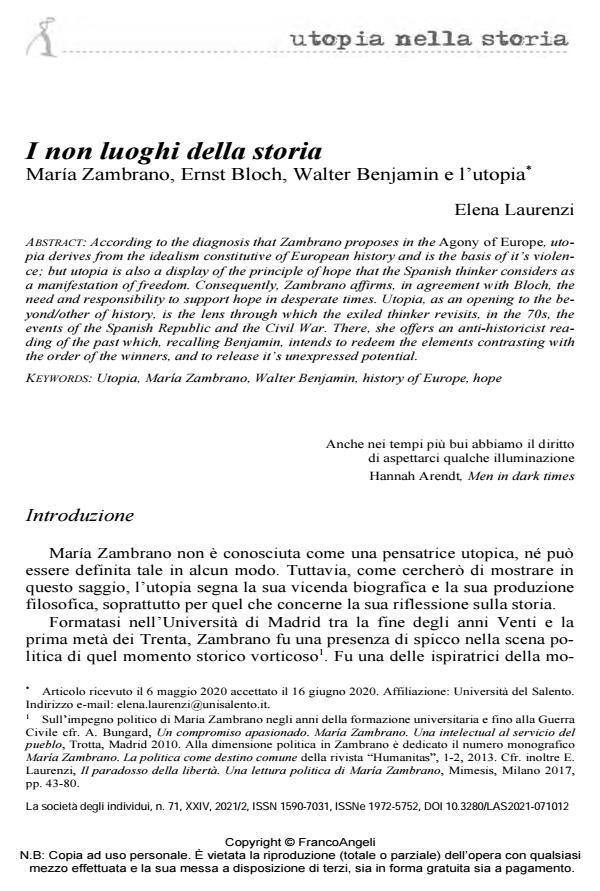I non luoghi della storia. María Zambrano, Ernst Bloch, Walter Benjamin e l’utopia
Journal title SOCIETÀ DEGLI INDIVIDUI (LA)
Author/s Elena Laurenzi
Publishing Year 2021 Issue 2021/71
Language Italian Pages 16 P. 153-168 File size 97 KB
DOI 10.3280/LAS2021-071012
DOI is like a bar code for intellectual property: to have more infomation
click here
Below, you can see the article first page
If you want to buy this article in PDF format, you can do it, following the instructions to buy download credits

FrancoAngeli is member of Publishers International Linking Association, Inc (PILA), a not-for-profit association which run the CrossRef service enabling links to and from online scholarly content.
According to the diagnosis that Zambrano proposes in the Agony of Europe, uto¬pia derives from the idealism constitutive of European history and is the basis of it’s violen¬ce; but utopia is also a display of the principle of hope that the Spanish thinker considers as a manifestation of freedom. Consequently, Zambrano affirms, in agreement with Bloch, the need and responsibility to support hope in desperate times. Utopia, as an opening to the be¬yond/other of history, is the lens through which the exiled thinker revisits, in the 70s, the events of the Spanish Republic and the Civil War. There, she offers an anti-historicist rea¬ding of the past which, recalling Benjamin, intends to redeem the elements contrasting with the order of the winners, and to release it’s unexpressed potential.
Keywords: Utopia, María Zambrano, Walter Benjamin, history of Europe, hope
Elena Laurenzi, I non luoghi della storia. María Zambrano, Ernst Bloch, Walter Benjamin e l’utopia in "SOCIETÀ DEGLI INDIVIDUI (LA)" 71/2021, pp 153-168, DOI: 10.3280/LAS2021-071012